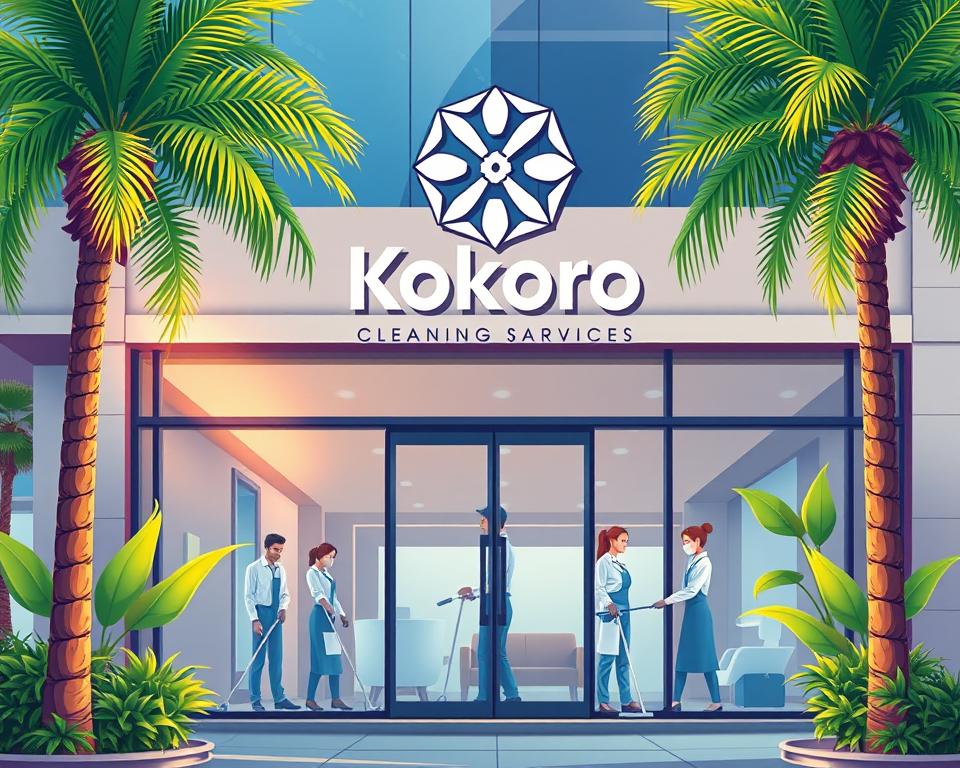Real Designer Furniture Hong Kong for Lavish Dwellings
What does it take to transform a house into a luxurious haven? Everything hinges on the details—meticulously chosen objects uniting modern flair and timeless workmanship. Here at Stockroom, we make that vision a reality, providing unique assortments that reinvent refinement.
Stockroom, with galleries in Wan Chai and Mong Kok, is your top choice for luxury. Explore over 358 meticulously curated items, available both in-store and online. Exclusive VIP options offer custom-crafted marble tables and personalized upholstered sofa beds fitting your signature style.
Within Wan Chai, you benefit from same-day drop-off up to a 3km distance. Enhance your living space with Coffee table Hong Kong, as each item narrates a tale of refinement and excellence.
Important Discoveries
- Stockroom is a top destination for luxury, with showrooms in Wan Chai and Mong Kok.
- Unique offerings unite new-age design and traditional craftsmanship.
- View 358+ carefully chosen items, purchasable in-store or online.
- VIP package provides custom-crafted marble tables and individually upholstered sofa beds.
- Wan Chai patrons receive same-day delivery up to 3km away.
Designer Furniture Insights in Hong Kong
Hong Kong is a bustling nexus for creative home furnishings. Hong Kong unites classic roots and cutting-edge design, fashioning a particular domain for luxury and originality. For a decade and a half, Stockroom has driven this movement, selecting European-caliber furniture that reimagines elegance.
Our showrooms, located in Wan Chai and Mong Kok, showcase a diverse range of styles. From Modern Vintage to Industrial Loft and Scandinavian Minimalism, there’s something for every taste. All pieces are designed accurately for refined looks and enduring quality.

We’re excited to showcase advanced materials like scratch-seal ceramic countertops. These advancements blend useability and fashion, fitting for today’s dwellings. Be it a makeover or a blank slate, our lines provide limitless opportunities.
For anyone desiring custom flair, our VIP interior consulting is ready. Our experts work closely with you to create spaces that reflect your unique vision. Visit Stockroom today and experience the artistry of luxury home decor.
Top Luxury Dining Table Recommendations
Enhance meals with upscale tables uniting elegance and purpose. At Stockroom, we offer exclusive pieces designed to make every meal memorable. We carry the highest-demand 10-seat solid oak table equipped with butterfly extension panels for more adaptability. Priced between $51,380 and $72,780, this table is a timeless investment for your home.
If contemporary style appeals, our adjustable marble table excels. Starting at $42,380, it comes with an 18-month warranty, ensuring peace of mind with your purchase. Whether entertaining guests or dining with family, these tables command attention.
Choosing between round and rectangular tables depends on your space and style. Round tables imply warmth and work best in tight spaces. On the flip side, rectangular tables supply extra seating and classic appeal. Each form is offered to match different inclinations.
Preserving your premium table is basic but necessary. Use a soft cloth to clean solid wood surfaces, avoiding harsh chemicals. For marble tables, regular sealing helps maintain their pristine appearance. Adhering to these instructions sustains your table’s star quality.
Securing a luxury table is convenient through our installment choices. Should you buy over HK$30,000, we provide adaptable payment arrangements to align with your budget. Head to Stockroom now and uncover the ultimate dining table to boost your home.
Chic Sofas to Adorn Your Lounge
Discover the perfect blend of comfort and style with our curated sofa collection. Whether needing a standout or a useful fixture, our sofas work to upgrade your living area.
Our Italian leather sofa for three is a best-seller. Offering USB charging stations, it fits seamlessly into modern life. Its streamlined look and top-grade components guarantee it shines wherever placed.
Pet-friendly households enjoy our stain-defying covers that endure use and wipe off quickly. After prolonged use, these covers keep their crisp appearance, perfect for lively homes.
Our Stockroom furniture line also features compact sofa beds. Including memory foam padding, these sofa beds ensure excellent comfort for staying friends or family. Great for limited-space environments, these units blend usefulness and fashion.
As for padding, pick duck down or high-performance foam. Duck down delivers a soft, lavish sensation, while resilient foam supplies solid support. Both options are designed to maintain their shape over time.
| Cushion Filling |
Features |
Best For |
| Duck Feather |
Plush, luxurious feel |
Those craving luxury seating |
| High-Resiliency Foam |
Sturdy backing, long-lasting |
Durability-focused buyers |
Take advantage of our current floor model discounts, with savings of up to 40% off. These original pieces are available for a limited time, so don’t miss out on the opportunity to improve your lounge area.
Sleek Side Tables & Cabinets
Renew your setting with useful yet trendy elements that meld seamlessly into your design. Be it ceramic-topped side tables or industrial-chic metal armoires, our inventory provides multipurpose elegance for all areas.
Marble-accented nesting tables are a standout choice. Each model offers secret storage, suited to tight quarters. The minimalist aesthetic offers chicness while organizing your essentials.
Those who collect will crave our lockable exhibition cabinets. Each cabinet ensures safety and flair when revealing cherished objects. Durable glass front panels keep items in view and secure.
Oenophiles will enjoy our climate-balanced sideboards. Crafted to maintain wine in prime conditions, these buffets integrate practicality and modern flair. They are a great enhancement for both dining and living environments.
Wall-hung console tables that conserve space are perfect for smaller dwellings. They deliver practicality while upholding fashionable looks. Their streamlined silhouette fits diverse interior styles, offering flexibility.
Round out your design with our unified lounge sets. Selling as a 15% off package, these sets come with complementary side tables and cabinets. This cohesive approach ensures your space feels harmonious and well-designed.
Whether pursuing an attention-grabber or a pragmatic piece, our inventory offers everything. Discover our fashionable side tables and cabinets today to boost your interior design.
Top-Tier Lighting Options to Illuminate Your Home
Lighting plays a crucial role in setting the mood and enhancing the ambiance of your home. Stockroom provides top-quality fixtures blending fashion and practicality to refresh any area.
Our adjustable pendant lights, priced between $6,080 and $8,180, are perfect for creating a focal point in your dining or living area. These adaptable lights enable height and angle changes, delivering the right balance for your area.
To add a contemporary element, consider our Smart LED setups beginning at $21,180. These smartphone-enabled setups offer circadian rhythm controls, varying lighting to mirror daylight cycles. It raises comfort and promotes your daily rhythm.
Desiring a standout fixture? Our Murano glass chandeliers with adjustable dimmers lend luxury to any room. Handcrafted with precision, these chandeliers are both functional and visually stunning.
Eco-efficient LED options are also a focal point of our range. They can cut energy costs by as much as 40%, offering a green and budget-savvy solution. Team them with our outdoor-capable patio lights to ensure a smooth indoor-to-outdoor connection.
Every transaction includes skilled installation guidance to ensure perfect placement. Whether updating or embarking on a fresh start, Stockroom delivers optimum lighting fixtures to light up your area.
Modern Chairs for Each Room
Chairs are more than just seating—they’re a statement of style and comfort. Be it a snug lounge or a streamlined workspace, the perfect chair revamps your area.
Our office chairs with Herman Miller-inspired ergonomics aim at output and comfort. Ranging from $10,480 to $13,880, they include changeable lower-back support and airy mesh seats. Designed for extensive use, these chairs blend purpose with sleek aesthetics.
For a touch of luxury, explore our bouclé fabric lounge chairs with matching ottomans. These pieces are ideal for creating a relaxing corner in your home. Their plush feel and muted hues render them adaptable to all interiors.
The substance used for dining chairs is important. Wood contributes an age-old charm, while metal infuses a modern flair. Alternatively, acrylic chairs supply a crisp, simple aesthetic. Every type boasts its own elegance, so opt guided by your style and practical needs.
Patio and yard settings warrant care likewise. Stackable outdoor chairs with UV safeguards maintain color through tough climates. Compact yet robust, they’re ideal for balconies or outdoor lounge areas.
Seize our special deal: Buy one and get a second item 50% off on select models. This time-sensitive deal lets you upgrade your space affordably.
- Ergonomically optimized chairs for better performance and ease.
- Bouclé relaxation chairs accompanied by ottomans for a mellow corner.
- Dining seating in wooden, metallic, or acrylic styles to fit any decor.
- UV-protected stackable patio chairs for lasting use.
- Buy one get one 50% off deal on chosen models.
Basics for the Dining Room
Crafting a dining environment that’s cozy and high-end begins with key necessities. From a prime dining table to chic chairs, every aspect adds to a harmonious and graceful design.
Ideal tabletop heights fall from 28″ to 30″ to fit different seating styles. Refer to this concise table for matching advice:
| Chair Type |
Ideal Table Height |
| Conventional Dining Chairs |
28 in – 30 in |
| Counter-Height Bar Stools |
From 36 to 42 inches |
| Breakfast Counter Stools |
Twenty-four to twenty-six inches |
Pair your table with stain-resistant linens from Stockroom’s accessory line. These coverings offer utility and chicness, making upkeep easy and bringing a refined touch to meals.
If you relish entertaining, glassware storage solutions in your china cabinet are key. They store your tableware and glassware neatly and accessibly, making every meal remarkable.
Round out your table with our ten-piece place settings sold in several designs. These sets include everything you need to create a polished and cohesive table setting, perfect for both everyday meals and special occasions.
Unsure about layout? Our professional planners offer consultation. If you own a loft-style room or a small dining nook, our professionals will devise an arrangement that enhances style and practicality.
From solid oak tables to matching seating, Stockroom delivers all essentials to enhance your dining area. Visit us today and discover the perfect pieces to transform your space.
Cornerstone Luxury Materials
The heart of elegance is within the materials that constitute it. Beginning with responsibly sourced oak to 304 stainless steel and top-tier marble, each option offers singular traits and strength. Let’s explore the options that define elegance and functionality.
When it comes to wood, oak, walnut, and teak are top choices for their strength and beauty. Consider this concise chart:
| Wood Type |
Durability |
Best Use |
| Oak |
Very High |
Cabinetry, furniture |
| Natural Walnut |
Average |
Accent pieces |
| Teak |
Outstanding |
Exterior furnishings |
Antimicrobial copper-alloy surfacing is a breakthrough for busy surfaces. These finishes not only look sleek but also help maintain hygiene, making them ideal for kitchens and bathrooms.
High-heat ceramic surfaces are another cutting-edge option to evaluate. Suitable for culinary worktops, they handle high temperatures and keep their fresh look. Therefore they’re practical as well as trendy.
Not certain which material fits your design? Use our material sampling service. We supply mailed samples at no cost, permitting hands-on evaluation before deciding.
If environmental impact matters, green options such as bamboo composite work wonderfully. They combine longevity and eco-friendliness, dovetailing with current ideals.
From classic wood to innovative metal and ceramic finishes, the right materials can transform your home into a luxurious retreat. Peruse our lineup now and pinpoint the best material for your room.
Space-Saving Designer Furniture
Maximizing space in smaller homes requires smart, stylish solutions. At Stockroom, we specialize in pieces that combine functionality with elegance, making every inch count.
Wall-mounted beds, beginning at $34,280, create radical change in studio layouts. These beds fold away seamlessly, freeing up valuable floor space during the day. Team them with expandable cocktail tables ($7,080–$7,680) to achieve a multipurpose layout.
Dual-purpose ottomans with built-in storage combat clutter. They work as bonus seats, footrests, or accent surfaces, and stash your possessions away behind the scenes.
If you work remotely, adjustable-height desks are essential. They settle snugly into cramped areas, granting ergonomic relief and modern design. Shallow-depth couches under 32″ across make another great pick for snug areas, providing comfort while staying unobtrusive.
Mirrored pieces ingeniously amplify sunlight and trick the eye into seeing more space. From display cases to entryway consoles, these items impart elegance and spatial illusion.
Need design assistance? Our HK$1,800 space planning consultation offers specialist input to perfect your arrangement. Whether outfitting a studio or a small apartment, Stockroom supplies prime solutions to update your home.
Enduring Pieces for a Timeless Home
Crafting a timeless home involves merging heritage and contemporary grace. At Stockroom, we supply curated items that outlast changes, keeping your space chic for ages.
The Chesterfield couches at $47,780 exemplify enduring craftsmanship. With quilted leather and rolled armrests, they impart luxury to every living area. Combine them with Persian-style carpets at $64,880 for a matched ensemble radiating opulence.
History lovers should check out our reproduction antique writing desks. Every item includes hand-sculpted wooden accents, reflecting the artistry of a past time. Not only do these desks serve a purpose, but they also stand as artistic creations.
Historic cloth styles from European ateliers infuse further elegance into our selection. Here is a side-by-side look at our top fabric prints:
| Pattern |
Origin |
Best Use |
| French Damask |
French Mills |
Upholstery, curtains |
| English Toile |
England |
Accent chairs, pillows |
| Brocade |
Italy |
Accent furniture |
Our restoration experts revive heirloom items so they keep looking stunning for years. If you have a cherished heirloom or a retro discovery, our specialists will restore it to glory.
Our restricted-edition, numbered series are a collector’s delight.
Each furnishing is exclusive, fitting as a prized home feature.
Discover our enduring pieces today to build a space that speaks of you.
Thrifty Luxury: Sale Items
Securing premium L shape Sofa Hong Kong at a bargain is more straightforward than you believe. Our unique sale deals present high-end quality without the luxury price. Whether you need a trendsetting sofa bed or a full dining collection, we’ve got it all.
Look at our present specials: sofa beds priced from HK$8,980 and dining sets from HK$7,980. These items merge style and useability, fitting for all residences.
Catch our 72-hour flash sale pieces, refreshed every week. These fleeting deals offer our hot-ticket items at record-low price points. Move quickly—these offers expire soon!
For substantial markdowns, see our display units at up to 60% off the original price. Every one of these products is top-notch and primed to better your area.
Check out our clearance area for off-season essentials. They suit anyone aiming to remain fashionable on a budget. Furthermore, each sale piece includes extended warranties, ensuring放心购买.
VIP subscribers access sale events early, giving them priority selection of deals. Join our VIP program today and start saving on luxury for your home.
Personalized Furniture Options
Customizing your interiors is simpler than ever with our bespoke selections. Whether you’re looking for a unique centerpiece or a functional addition, our services ensure every piece fits your vision perfectly.
Commence with our made-to-order marble tables, fashioned to your unique instructions. With an 8-12 week lead time, these tables are worth the wait.
Pick from multiple dimensions and surface options to suit your decor.
Our reupholstery service lets you renew beloved furnishings. With over 200 fabric swatch options, you can transform an old sofa or chair into something entirely new. Choose between striking designs and subdued shades, as you prefer.
Modular shelving choices grant multipurpose use through 15+ arrangements. Whether you need storage for books, decor, or both, these systems adapt to your needs. Ideal in studios or sprawling areas, they balance utility and style.
Personalize further with monogram embroidery on leather products. From seats to footrests, these personalized touches guarantee one-off pieces.
The 3D visualization feature lets you preview the end result before you decide. Play with layouts, hues, and finishes to design a room you adore.
For intimate corners, look into custom window seat creations. These pieces are tailored to fit your space perfectly, offering both comfort and storage. They work wonderfully in reading nooks or dining nooks.
- Personalized marble tables taking 8–12 weeks to craft.
- 200+ fabric swatch options for reupholstering.
- Modular shelving solutions available in 15+ configurations.
- Monogram customization for leather furnishings.
- Three-dimensional design visualization feature.
- Bespoke window seat designs.
From conceptual design through material choice, our bespoke selections suit your distinct needs. Explore these services today and create a home that’s truly yours.
Where to Find Designer Furniture in Hong Kong
Discovering where to buy top-quality home decor is less complicated than you imagine. Either touring our Wan Chai flagship store or heading to our Mong Kok branch, each showroom presents a distinct experience designed for you. Each showroom offers a unique experience tailored to your needs.
Stop by our Wan Chai branch on the 8th floor of Shun Pont Commercial Building, a center of sophistication and creativity. At our location, view curated ranges uniting trendy design and traditional craftsmanship. For those in Mong Kok, the showroom features a more intimate setting, perfect for discovering hidden gems.
Valet parking makes your visit effortless with our validation scheme. Just hand your ticket at reception, and we’ll handle everything else. This service assures uninterrupted shopping enjoyment from arrival to departure.
If you want a tailored experience, schedule a private shopping session. Our design professionals will lead you through our assortments, advising on items that align with your style and vision. This creates a bespoke shopping journey crafted solely for you.
Company accounts receive extra advantages like corporate pricing and early previews of new items. Whether you’re furnishing an office or a client’s space, our team is here to support your needs.
We coordinate international shipping with DHL, making it simple to receive luxury items anywhere. With reliable delivery and tracking, your items will arrive safely and on time.
From browsing our showroom to scheduling a private appointment, every facet is crafted to elevate your shopping journey. Drop by now to see why we lead as the top spot for luxury interior furnishings.
Tips for Styling Your Home with Designer Pieces
Your home projects your essence, and choosing the proper accents can revolutionize it. Stockroom embraces making rooms that blend function and stunning visuals. Our showroom vignettes are social-media-ready, sparking ideas for mixing retro and contemporary styles fluidly.
Commence by combining ageless vintage decor with current accents. As an example, team a traditional Chesterfield couch with chic, cutting-edge side tables. This balance creates a layered look that feels both cozy and chic. Seasonal ensemble packages are another excellent method to update your decor. From cozy winter throws to vibrant summer cushions, these bundles make it easy to update your style throughout the year.
Strategic lighting is crucial to set the tone. Combine ambient, task, and accent fixtures to build depth and cozy vibes. Hanging fixtures above the dining area, floor lamps by reading corners, and LED under-cabinet strips can redefine each room. In 2024, popular hues include gentle neutrals such as beige and taupe, accented with vivid tones like emerald green or deep navy.
When you’re uncertain, our styling experts are ready to advise. At HK$5,000, our specialists collaborate with you to craft a unified, custom aesthetic. Whether refreshing one room or your whole home, we support you throughout.
Adorning your place doesn’t have to be stressful. Equipped with suitable guidance and items, you can design a space that’s uniquely yours. Visit Stockroom today and discover how easy it is to improve your style.
Why High-Quality Purchases Matter
Opting for high-quality items yields long-term benefits. Despite budget-friendly furniture seeming like a steal, it often needs recurring replacements and increases spending ultimately. In comparison, luxury items are designed for endurance, delivering exceptional robustness and elegance.
To see why quality pays, look at price-per-use comparisons. A solid wood frame with a 10-year warranty may have a higher upfront cost, but its longevity ensures you’ll save money over the years. Fast furniture, while cheaper initially, often needs replacing within a few years, making it a less economical choice.
High-end items often become heirlooms. These items are crafted with care, designed to be passed down through generations. They carry stories and memories, making them more than just functional—they’re meaningful additions to your home.
Stockroom embraces its promise of superior quality. Our repair services ensure your furnishings retain top form for many years. Moreover, our verification services confirm each purchase is authentic and built to exacting standards.
Should you want to renew, our trade-in initiative offers a green method to modernize your space. Simply bring in your previous collections, and we’ll help you find new pieces that match your evolving style. This effortless procedure merges ease with opulence.
Spending on premium items is more than buying furniture—you’re establishing a long-lasting heritage. Check out our lineup today to understand how quality and detail transform your home.
Final Thoughts: Improve Your Home with Designer Furniture Hong Kong
Your home demands the finest, and Stockroom supplies precisely that. With exclusive services like custom designs and VIP consultations, we ensure every piece reflects your unique style. Come to our galleries to feel opulence in person or peruse our e-catalog from your living room.
Capitalize on our special financing promotions to make obtaining luxury easier. To get bespoke service, schedule a one-on-one shopping session with our specialists. They will steer you through our selected ranges to pinpoint the best fit for your room.
Become a loyalty member to gain privileges such as priority sale invites and unique discounts. Be sure not to miss our promotions—access our site now to commence upgrading your home into a realm of elegance.









